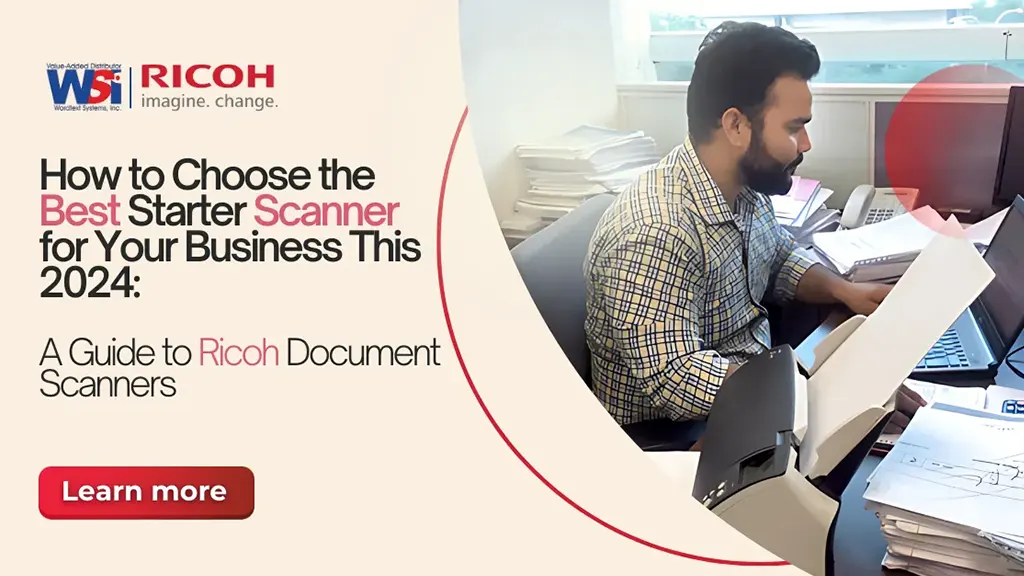Handling paperwork and other critical documents efficiently is crucial for businesses of all sizes. However, many businesses struggle to choose the right type of scanner, often overspending on equipment that doesn’t meet their needs. This blog post will guide you in selecting the ideal entry-level scanner for your business.
What is a Scanner?
A document scanner is a device that converts physical documents into digital copies, which can then be stored on your computer, cloud-based storage, flash drives, and more. This digitization process is essential for maintaining organized and accessible records.
Types of Scanners
There are two main types of scanners that businesses typically use:
1. Automatic Document Feeder (ADF) Scanners
Automatic Document Feeder (ADF) scanners are highly efficient and fast, designed to handle large volumes of paperwork with minimal user intervention. They can scan both sides of a document (duplex scanning) by automatically feeding a stack of documents into the scanner, significantly speeding up the process.
2. Flatbed Scanners
Flatbed scanners are versatile and commonly used for various document types due to their affordability and efficiency. They are ideal for scanning large documents, books, photographs, canvases, paintings, and other fragile documents that do not require feeding through a mechanism. However, they can be slower as documents require manual placement, and they typically scan only one side of the document (simplex scanning). Some flatbed scanners come with an ADF option, combining high-quality scanning with the speed and convenience of an ADF for bulk tasks.
Key Features to Consider
When choosing a starter scanner for your business, consider the following features:
1. Scan Size
Ensure the scanner can accommodate the document sizes you frequently handle. Some entry-level scanners may not support A4 or larger documents, which can be a significant limitation. If you primarily work with smaller documents such as passports, driver’s licenses, or documents up to A6 size, choose a scanner that meets these specific requirements to avoid overspending on larger scanners.
2. Resolution / Image Quality
For most business documents, a resolution of 300 DPI (dots per inch) is sufficient. However, if you need to scan detailed images or graphics, look for a scanner with higher resolution capabilities of 400 DPI or more.
3. Speed
Consider the scanning speed, especially if you handle large volumes of documents. Scanning speed is typically measured in pages per minute (ppm) or images per minute (ipm). ADF scanners usually offer faster scanning speeds compared to flatbed scanners for large documents. Entry-level scanners generally start at speeds of up to 20 ppm, with high-end models reaching up to 140 ppm.
4. Duty Cycle Per Day
The duty cycle indicates how many documents the scanner can handle daily without excessive wear and tear. Knowing the duty cycle helps maintain the scanner and prolong its lifespan. Entry-level scanners usually support duty cycles ranging from 3,000 to 4,500 pages per day.
5. Connectivity
Check the connectivity options available. Many modern scanners offer multiple operation capacities such as: USB/LAN connection, Wi-Fi connectivity, and cloud integration, providing flexibility and convenience for instant sharing of scanned documents.
6. Software
The software included with the scanner significantly impacts its usability. Look for scanners that come with robust and user-friendly software for managing and organizing digital documents. Modern scanners are often equipped with Optical Character Recognition (OCR) technology, which can automatically extract data from text images and convert them into a machine-readable format.
Product Models Recommendation
Based on the features discussed, here are a few recommended starter scanners for your business from both the Fi and SP series.
The Ricoh Fi Series:
1. Ricoh Fi-8150
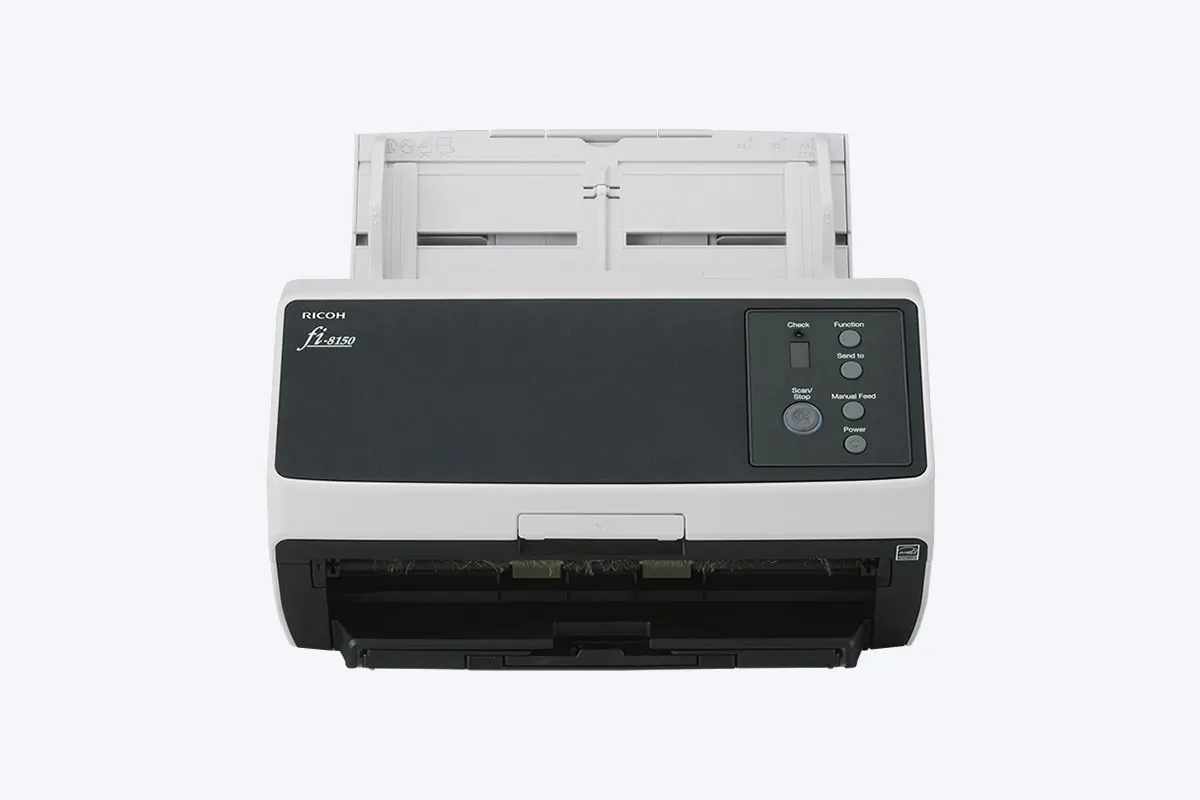
The Ricoh Fi-8150 features high-speed scanning at 50 ppm, supports A4 documents, 100-sheet ADF scans and can carry up to 600 dpi resolution. This document scanner can have a duty cycle of 8,000 pages per day.
Download the datasheet here: RICOH fi 8150 Datasheet
- Ideal For: Medium to large-sized workgroups in businesses needing reliable and fast document processing.
2. Ricoh Fi-8290
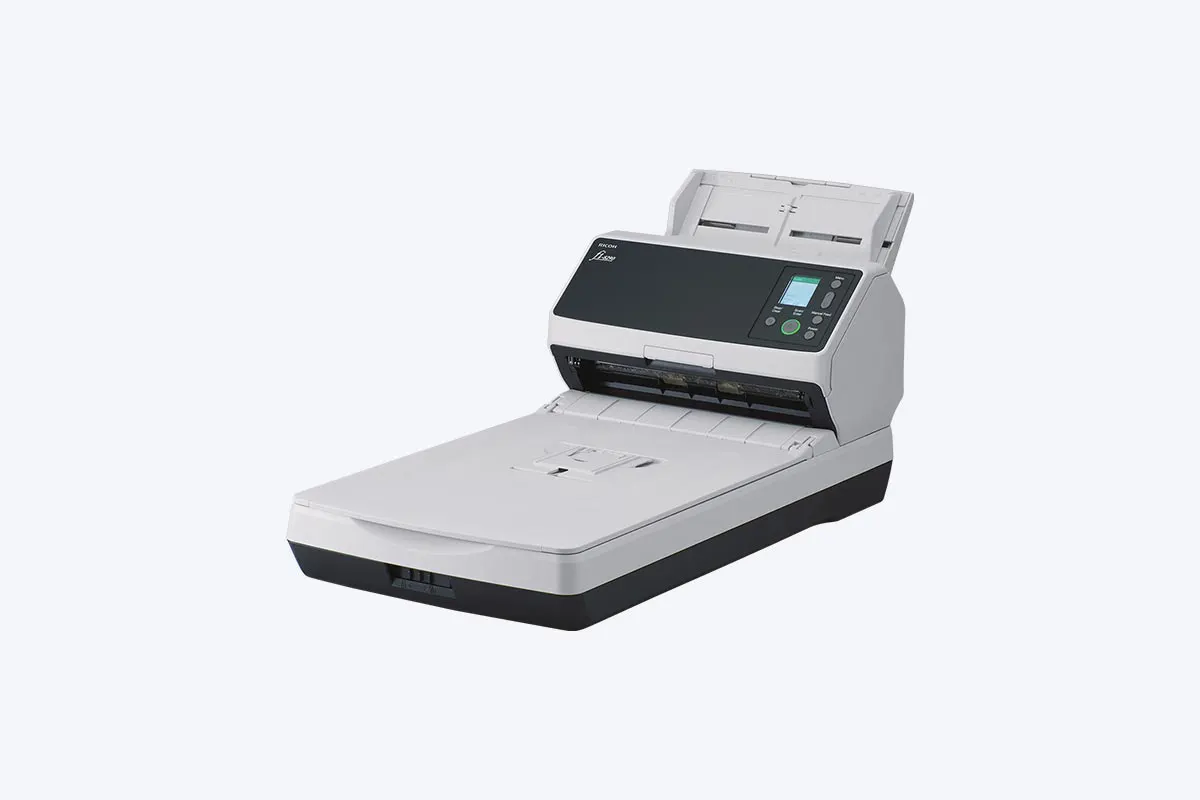
The Ricoh Fi-8290 combines flatbed and ADF functionalities, scans at 90 ppm and has a DPI of 600, supports A4 documents, flatbed for delicate documents, 100-sheet ADF and high duty cycles of up to 13,000 pages per day.
- Ideal For: Businesses and their respective departments needing to scan a variety of document types, including fragile or bound documents while focusing on delivering fast scanning capacities.
Download the datasheet here: RICOH fi 8290 Datasheet
3. Ricoh Fi-8190
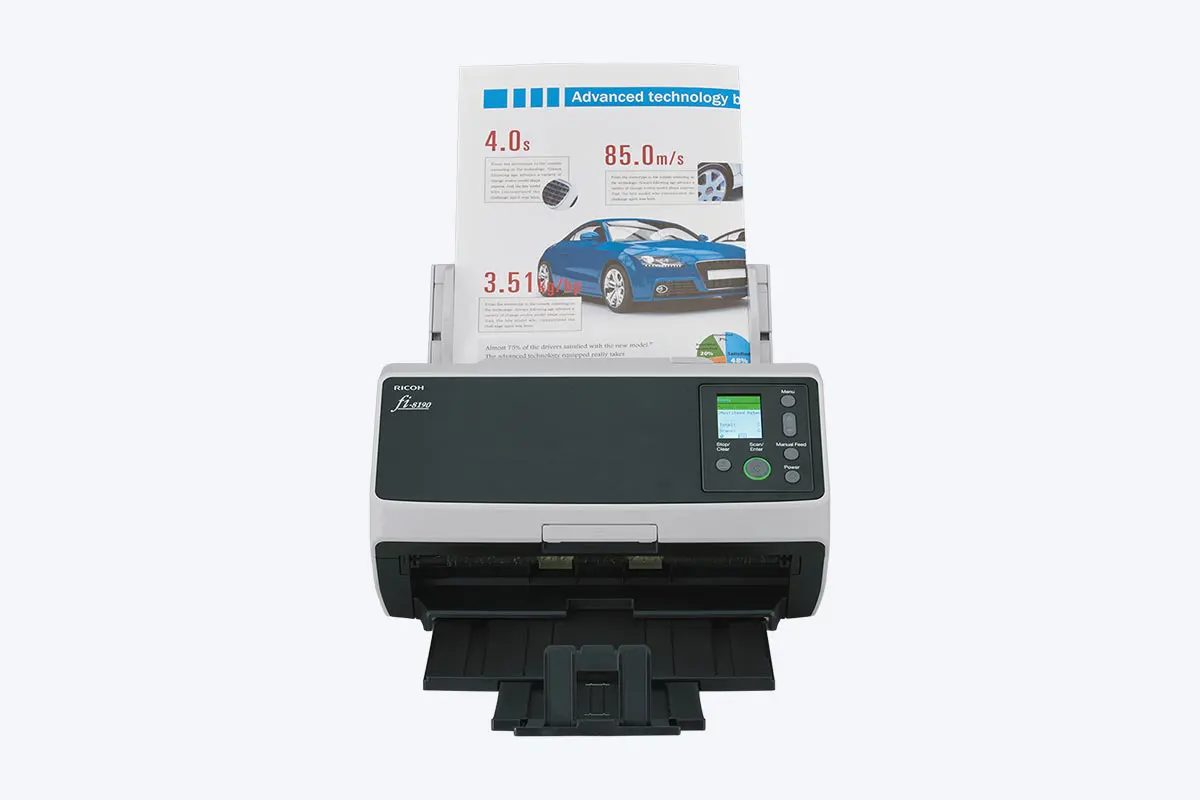
The Ricoh Fi-8190 ADF scanner features robust performance, scans at 90 pages per minute (ppm) with 600 DPI, supports A4 documents, and includes advanced paper handling with a duty cycle of 13,000 pages per day.
Download the datasheet here: RICOH fi 8190 Datasheet
- Ideal For: Departmental usages requiring heavy-duty scanning tasks and high-volume environments. The scanner is at home handling copy forms and passports or booklets.
In terms of software systems, the Ricoh Fi business scanners come equipped with Paperstream IP and Capture software, despite its advanced capabilities, maintains a user-friendly interface. This software automatically enhances the quality of various document scans, producing clearer and more detailed images without additional effort. Users can easily rename files, clean up images, extract data, adjust character thickness, edit scanning orientations, detect and release misfed documents, and send them to prefer folders or email addresses. It also carries highly performing Zonal OCR (Optical Character Recognition), crucial for accurate document management by detecting text in specific areas of scanned documents and automatically renaming files based on the extracted data, leading to higher quality scans and more efficient workflows.
From the Ricoh SP Series
Ricoh SP 1120N
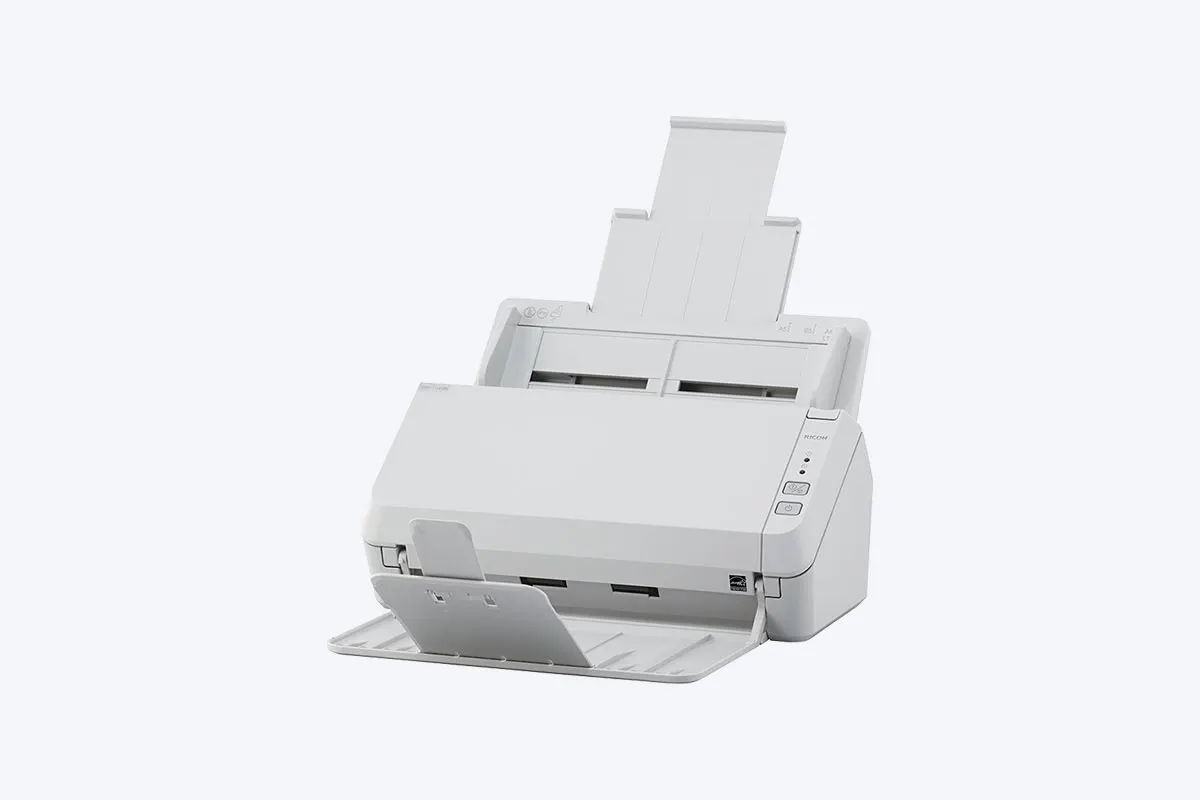
The Ricoh SP 1120N scans at 20 pages per minute (ppm) and handles up to 50 sheets, it offers up to 600 dpi resolution for high-quality scans.
- Ideal For: Small to medium-sized businesses or other professional usages that require reliable and efficient document scanning.
Download the datasheet here: RICOH SP 1120N Datasheet
In conclusion, by considering the key features and types of scanners available, you can select a scanner that will help you manage your documents efficiently without overspending. Investing in the right scanner will save you time and enhance your document management process, contributing to the overall productivity of your business.
